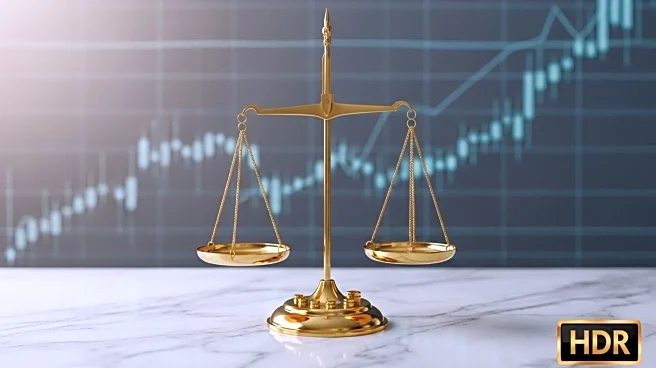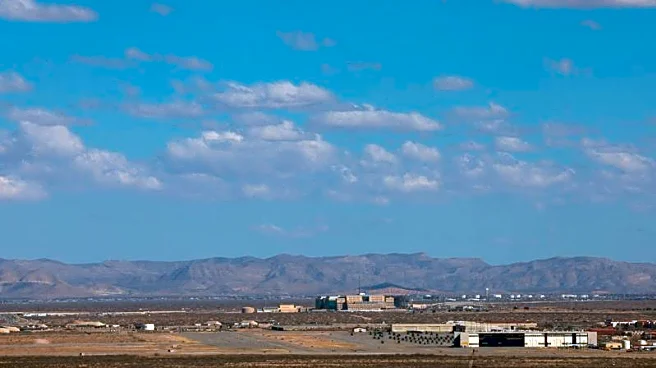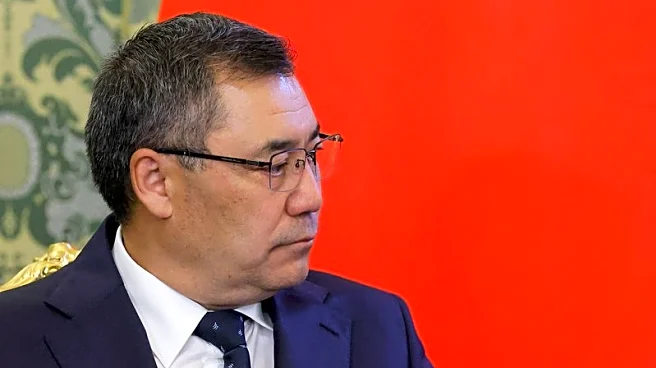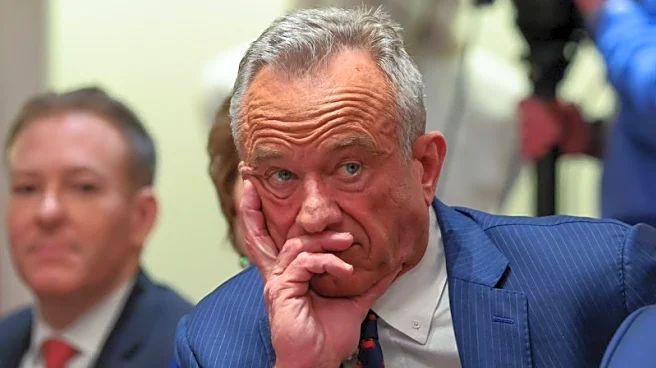What's Happening?
The Federal Reserve is anticipated to cut its benchmark interest rate by a quarter-point at its upcoming meeting, aiming to address a slowing job market and economic stagnation. This decision comes as the Fed faces a dual challenge of managing inflation, which is currently above its 2% target, and supporting employment. The rate cut is expected to lower borrowing costs and stimulate economic activity. The Fed's decision is influenced by recent data showing minimal job growth and a downward revision of job creation estimates. Additionally, the Fed will release projections for future rate cuts, potentially indicating an accelerated timetable. The meeting is also marked by political pressure from the White House, with President Trump advocating for significant rate cuts and attempting to influence the composition of the Fed's interest rate committee.
Why It's Important?
The anticipated rate cut by the Federal Reserve is significant as it reflects a shift in focus from controlling inflation to supporting the labor market. This move could have wide-ranging implications for the U.S. economy, potentially boosting consumer spending and business investment by making borrowing cheaper. However, it also raises concerns about the Fed's independence, given the political pressure from the White House. The decision could impact various stakeholders, including businesses, consumers, and financial markets, which are closely watching the Fed's actions. A rate cut could provide relief to sectors struggling with high borrowing costs, but it also risks stoking inflation if not managed carefully.
What's Next?
Following the expected rate cut, the Federal Reserve will likely continue to monitor economic indicators closely to determine the necessity of further rate adjustments. The Fed's projections for future rate cuts will be scrutinized for insights into its long-term strategy. Additionally, the legal battle over Fed Governor Lisa Cook's position and the potential confirmation of Stephen Miran to the Fed's board could influence future policy decisions. The Fed's actions will be closely watched by political leaders, businesses, and economists, as they navigate the complex balance between fostering economic growth and maintaining price stability.
Beyond the Headlines
The Federal Reserve's decision to cut interest rates highlights the ongoing debate about the central bank's role in managing economic policy amid political pressures. The situation underscores the importance of maintaining the Fed's independence to ensure unbiased economic decision-making. The legal and political challenges surrounding the Fed's governance could have long-term implications for its credibility and effectiveness. Additionally, the rate cut may signal a broader shift in monetary policy priorities, with potential impacts on global financial markets and international economic relations.









